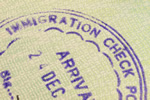Life in the Gulf States for expat professional women

Life in the Gulf States for expat professional women
Myths about women’s lives in the Gulf States can be off-putting for even the most determined female professionals, but the UAE in particular is well into the 21st century in many ways. Most women arriving in one of the emirates won’t find it difficult to adjust to the pattern of Arab life. However, Saudi Arabia differs in many respects, with women advised to always dress conservatively and become familiar with local customs and laws.
Across the UAE, avoiding revealing clothing is a must, with that description applying to shorts, bare shoulders, crop tops and halter-necked tops as well as other outfits deemed to be indecent. Keeping knees and shoulders covered is strongly advised in Saudi and, if you’re having difficulty with this, spare a thought for female expats in Iraq and Iran who have to keep everything covered at all times! If you’re in the emirates, carrying a scarf to cover up if you’re heading to a conservative area is advised.
Although expat women working in the Middle East are advised to consider their dress code and behavioural norms, they’re treated seriously and with respect in the workplace. The region is great for career opportunities and, especially in the UAE and Qatar, female professionals are making their way to the top of their professions and even into government positions. One benefit of a relocation to the Gulf States is the feeling of safety compared with most other major expat destinations.
However, whilst street crime is very low, foreign females can become victims of harassment whilst walking in crowded places or in malls and markets. It’s generally annoying rather than threatening, and dressing conservatively will lesson the likelihood of being approached. Another annoying factor is discrimination against female would-be renters of accommodation. Arranging an apartment before you arrive is way to avoid this issue, but you should remember that, due to shortages of suitable apartments, rents can be very high.
Simply because you’re female, you’ll be noticed more than if you’d been a man. To make integration easier, it’s best to get to know local traditions, religious practices and customs and show them respect. For example, during the holy month of Ramadan, non-Moslems are also expected to confirm with tradition by not eating or drinking in public during the day, not smoking, not playing loud music or being affectionate in public and not offering food and drink to practicing Moslems.
Related Stories:
- Is Kuwaitization the unintended result of the oil price crash? - July 20, 2020
- Expats in Malaysia still banned from overseas travel - July 17, 2020
- HSBC Asia to cut back on internal expat relocations - July 16, 2020
- Tips on integrating for newly-arrived expats - July 15, 2020
Latest News:
- Tips on a trouble-free relocation as an expat overseas - July 20, 2020
- Expats find peace in the covid-19 refuge of Dahab town - July 20, 2020
- Is Kuwaitization the unintended result of the oil price crash? - July 20, 2020
- Expats unhappy abut changes to Korean points-based visa system - July 17, 2020
- Chiang Mai and Bangkok no longer bargain locations for expats - July 17, 2020
- Expats in Malaysia still banned from overseas travel - July 17, 2020
- Vietnam welcomes expats to its safe, affordable lifestyle - July 16, 2020
- Asian tiger economies reach out to expats in Hong Kong - July 16, 2020
- HSBC Asia to cut back on internal expat relocations - July 16, 2020
- Tips on integrating for newly-arrived expats - July 15, 2020


